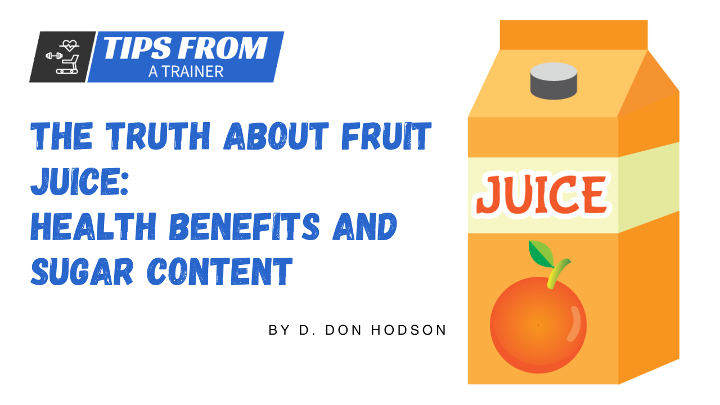Introduction
Fruit juice, a staple in many households, has been celebrated for its refreshing taste and perceived health benefits. As a common beverage choice, it has found its place in breakfast routines, lunch boxes, and even social gatherings. However, as the spotlight on sugar consumption intensifies, questions have arisen about the actual nutritional value of fruit juice and its implications for health. This article aims to provide a comprehensive understanding of the intricacies surrounding fruit juice, delving into both its health benefits and the sugar content that has raised concerns.
Table of Contents
Introduction
Unveiling the Nutritional Composition of Fruit Juice
Natural Vitamins and Antioxidants
Dietary Fiber and Digestive Health
Liquid Calories and Nutrient Density
Sugar in Fruit Juice: The Sweet Reality
Natural vs. Added Sugars
Understanding Sugar Content Labels
Impact on Blood Sugar and Insulin Response
Balancing Health Benefits and Sugar Concerns
Moderation and Portion Control
Pairing with Whole Fruits and Fiber
Timing and Meal Planning
Choosing the Right Fruit Juice
100% Pure Fruit Juice vs. Fruit Drinks
Reading Ingredient Labels
Opting for Low-Sugar Varieties
The Role of Fruit Juice in a Healthy Diet
Hydration and Electrolyte Balance
Convenience and Nutrient Intake
Incorporating Fruit Juice Mindfully
Health Implications: From Children to Adults
Children's Consumption and Dental Health
Fruit Juice and Weight Management
Potential Cardiovascular Effects
Conclusion

Unveiling the Nutritional Composition of Fruit Juice
Fruit juice comes with a tempting promise of delivering essential nutrients in an easy-to-consume liquid form. It boasts a rich assortment of vitamins and antioxidants that contribute to our overall well-being. By consuming fruit juice, individuals may anticipate an intake of vitamins such as vitamin C, which supports immune function, and various antioxidants that combat oxidative stress, potentially reducing the risk of chronic diseases.
Natural Vitamins and Antioxidants
One of the notable advantages of fruit juice is its provision of natural vitamins and antioxidants derived from the fruits themselves. These bioactive compounds play crucial roles in maintaining our health. For instance, orange juice is renowned for its high vitamin C content, which aids in collagen formation, wound healing, and the body's defense against infections. Similarly, antioxidants like polyphenols found in berry juices have been associated with potential anti-inflammatory and cardiovascular benefits.
Dietary Fiber and Digestive Health
While the nutritional merits of fruit juice are evident, it's important to acknowledge a significant difference between whole fruits and their juiced counterparts: dietary fiber. Whole fruits contain dietary fiber that contributes to digestive health by promoting regular bowel movements and fostering a feeling of fullness. In contrast, during the juicing process, fiber is often lost or reduced. This absence of fiber in fruit juice affects its impact on digestion and may lead to faster absorption of sugars.
Liquid Calories and Nutrient Density
The concept of nutrient density comes into play when evaluating the nutritional composition of fruit juice. Nutrient density refers to the ratio of essential nutrients, such as vitamins and minerals, to the total calories in a food or beverage. Fruit juice can be nutrient-dense, containing vitamins, minerals, and antioxidants in relation to its caloric content. However, it's important to note that fruit juice can also be calorie-dense due to its natural sugar content. Therefore, while fruit juice offers valuable nutrients, it's essential to be mindful of its caloric contribution to the diet.
Sugar in Fruit Juice: The Sweet Reality
Natural vs. Added Sugars
When it comes to the sugar content in fruit juice, it's essential to differentiate between the sugars that occur naturally in the fruit itself and those that are added during processing. Natural sugars, such as fructose, are intrinsic to the fruit and come bundled with essential nutrients like vitamins and fiber. On the other hand, added sugars are extra sugars incorporated into the juice during production, often with the intention of enhancing flavor. It's important to recognize that while both natural and added sugars contribute to the overall sugar content, their metabolic effects can differ.
Understanding Sugar Content Labels
Deciphering the information presented on sugar content labels is a valuable skill for individuals seeking to manage their sugar intake. Manufacturers are typically required to list the total sugar content on the nutrition label, but this figure does not distinguish between natural and added sugars. Being able to discern the origin of sugars can aid in making more informed decisions about the beverages we consume. Additionally, some food labels now include a breakdown of added sugars, which can be particularly helpful in gauging the extent of added sweeteners.
Impact on Blood Sugar and Insulin Response
The sugar content of fruit juice has implications for its effect on blood sugar levels and subsequent insulin response. When consumed, sugars are rapidly absorbed into the bloodstream, causing a rise in blood glucose levels. The body responds by releasing insulin to help transport glucose into cells for energy or storage. While natural sugars in fruit juice can lead to a spike in blood sugar, the presence of dietary fiber in whole fruits can slow down the absorption process, resulting in a more gradual increase in blood glucose levels. Understanding these dynamics can influence choices about fruit juice consumption, especially for individuals who need to manage their blood sugar levels.
Balancing Health Benefits and Sugar Concerns
Moderation and Portion Control
Like many aspects of nutrition, moderation is key when it comes to consuming fruit juice. Given the concentration of sugars in fruit juice, it's important to enjoy it in appropriate portion sizes. A small serving can provide the desired nutrients without overwhelming the body with excessive sugars. Moderation not only helps manage sugar intake but also prevents the risk of overconsuming liquid calories, which can contribute to weight gain over time.
Pairing with Whole Fruits and Fiber
To mitigate potential negative effects of sugar, consider consuming fruit juice alongside whole fruits that are rich in dietary fiber. Fiber has the ability to slow down the absorption of sugars, reducing the intensity of blood sugar spikes. Combining fruit juice with whole fruits can provide a more balanced and controlled release of sugars into the bloodstream. This approach supports the body's ability to manage blood sugar levels and may help prevent the subsequent crashes often associated with rapid sugar absorption.
Timing and Meal Planning
The timing of fruit juice consumption within the context of a well-balanced meal plan can impact its effects on the body. Consuming fruit juice alongside or after a meal that contains protein, healthy fats, and fiber can help stabilize blood sugar levels by slowing down the absorption of sugars. This can contribute to sustained energy levels and reduce the likelihood of experiencing sharp fluctuations in blood glucose. Careful meal planning can help individuals harness the benefits of fruit juice while minimizing potential sugar-related concerns.
Choosing the Right Fruit Juice
100% Pure Fruit Juice vs. Fruit Drinks
When selecting fruit juice, it's crucial to differentiate between the two main categories: 100% pure fruit juice and fruit drinks. **100% pure fruit juice** is derived solely from the liquid extracted from whole fruits, containing the natural sugars, vitamins, and minerals found in the fruit itself. This type of juice offers a more direct way of obtaining the nutrients present in fruits. On the other hand, **fruit drinks** often contain a combination of water, fruit juice concentrate, added sugars, and artificial flavorings. These drinks might resemble fruit juice in appearance and taste, but they usually have a higher sugar content and a lower nutritional value compared to 100% pure fruit juice.
Reading Ingredient Labels
To make informed choices about fruit juice, it's important to read and understand the ingredient labels on packaging. Look for fruit juices that list only one ingredient: the fruit itself. This indicates that the juice is likely to be minimally processed and free from added sugars or artificial additives. Be cautious of terms like "juice cocktail," "juice blend," or "fruit-flavored drink," as these labels often indicate a lower fruit content and a higher proportion of added sugars. Familiarize yourself with the ingredients to ensure you're selecting a product that aligns with your nutritional goals.
Opting for Low-Sugar Varieties
Choosing fruit juice with lower sugar content is another strategy to consider. Many fruit juices now offer **low-sugar** or **no added sugar** options, which can help individuals reduce their overall sugar intake while still enjoying the benefits of fruit juice. Low-sugar varieties are produced by using less fruit juice concentrate and diluting it with water. Additionally, some fruit juices may have been treated with enzymes to break down sugars, resulting in a naturally lower sugar content. Opting for these options can help individuals strike a balance between consuming fruit juice and managing sugar intake.
The Role of Fruit Juice in a Healthy Diet
Hydration and Electrolyte Balance
Fruit juice can play a role in maintaining proper **hydration** and **electrolyte balance**, particularly in individuals who engage in physical activity or live in warm climates. The high water content in fruit juice can contribute to daily fluid requirements, and the presence of naturally occurring electrolytes like potassium and sodium can help replenish electrolyte levels lost through sweating. While water remains the primary source of hydration, fruit juice can be a valuable addition, especially during periods of increased fluid loss.
Convenience and Nutrient Intake
One of the advantages of fruit juice is its convenience in delivering essential nutrients. For individuals who struggle to meet their daily fruit intake, consuming fruit juice can provide a convenient way to obtain important vitamins and minerals. However, it's important to note that while fruit juice can contribute to nutrient intake, it should not replace whole fruits in the diet. Whole fruits offer the added benefits of dietary fiber, which plays a significant role in digestive health and satiety.
Incorporating Fruit Juice Mindfully
Incorporating fruit juice into a healthy diet requires mindfulness and balance. It's important to consider the overall nutritional context of your diet and how fruit juice fits within it. If you choose to consume fruit juice, do so in moderation and as part of a diverse and balanced diet. Consider the timing of consumption, opting for instances where it complements your nutritional needs, such as post-workout recovery or alongside a meal. By integrating fruit juice mindfully, you can harness its potential benefits without compromising overall health.
Health Implications: From Children to Adults
Children's Consumption and Dental Health
The consumption of fruit juice among children has been a topic of concern due to its potential impact on dental health. Fruit juices, even those without added sugars, contain natural sugars that can contribute to the development of cavities if consumed excessively. The high acidity of some fruit juices can also erode tooth enamel over time. Young children, whose teeth are still developing, are particularly vulnerable to these effects. Dental health experts recommend limiting the intake of fruit juice among children and encouraging them to drink water or consume whole fruits instead. Establishing good oral hygiene practices and regular dental check-ups can help mitigate potential dental issues associated with fruit juice consumption.
Fruit Juice and Weight Management
The relationship between fruit juice consumption and weight management is complex and multifaceted. While fruit juice provides essential nutrients and hydration, its caloric content and sugar load can contribute to excess calorie intake if consumed in large quantities. Overconsumption of fruit juice, particularly high-sugar varieties, may contribute to weight gain and obesity, especially if it leads to an overall increase in daily calorie intake. On the other hand, incorporating moderate amounts of 100% pure fruit juice, while being mindful of portion sizes and overall calorie intake, can be part of a balanced diet that supports weight management goals.
Potential Cardiovascular Effects
The potential cardiovascular effects of fruit juice consumption have garnered attention from researchers and health professionals. While fruit juice contains beneficial nutrients like vitamins, minerals, and antioxidants, its sugar content has raised concerns about its impact on heart health. Excessive sugar intake, including that from fruit juice, has been linked to an increased risk of obesity, type 2 diabetes, and other cardiovascular risk factors. Some studies suggest that high-sugar diets may contribute to inflammation and impaired blood vessel function, which are associated with a higher risk of cardiovascular diseases. To promote heart health, individuals are advised to choose low-sugar fruit juice options and prioritize whole fruits as part of a heart-healthy diet.
Conclusion
In conclusion, the truth about fruit juice lies at the intersection of its health benefits and sugar content. Fruit juice can be a valuable source of essential vitamins, minerals, and antioxidants that contribute to overall well-being. However, its sugar content, whether naturally occurring or added, requires careful consideration, especially in the context of maintaining a healthy diet and managing potential health risks.
To make the most of fruit juice's benefits while minimizing its drawbacks, individuals are encouraged to adopt an informed and mindful approach. This includes selecting 100% pure fruit juice over fruit drinks, reading ingredient labels, and opting for low-sugar varieties when possible. Moderation in portion sizes, careful timing of consumption, and thoughtful pairing with whole fruits rich in fiber can further help balance health benefits and sugar concerns.
From children to adults, understanding the implications of fruit juice consumption is crucial for optimizing its role in a healthy lifestyle. By cultivating a balanced and informed perspective, individuals can make choices that align with their nutritional goals and contribute to their overall well-being.
As with any dietary aspect, individual preferences, health conditions, and goals vary. Consultation with a healthcare provider or registered dietitian can provide personalized guidance tailored to one's unique needs and circumstances.

Don Hodson, Certified Personal Trainer
I'm Don, an ACE-certified personal trainer and the founder of Tips From A Trainer. With my passion for fitness and years of experience, I've helped countless individuals transform their physiques!
Having personally overcome weight challenges throughout my life, I understand the struggle. Through consistency, exercise, and a balanced diet, I have managed to stay in shape and I want to share my message with the world!
The fitness industry is fraught with misconceptions and deceptive practices, which is why I am committed to providing you with the truth.
- My Site: www.Don-Hodson.com
- My Company: www.ConnectedAgeMarketing.com

The Truth About Fruit Juice